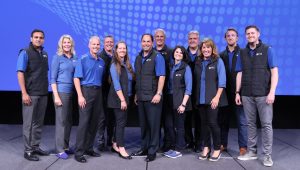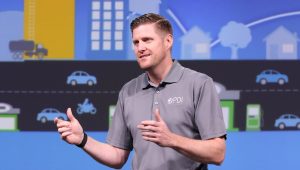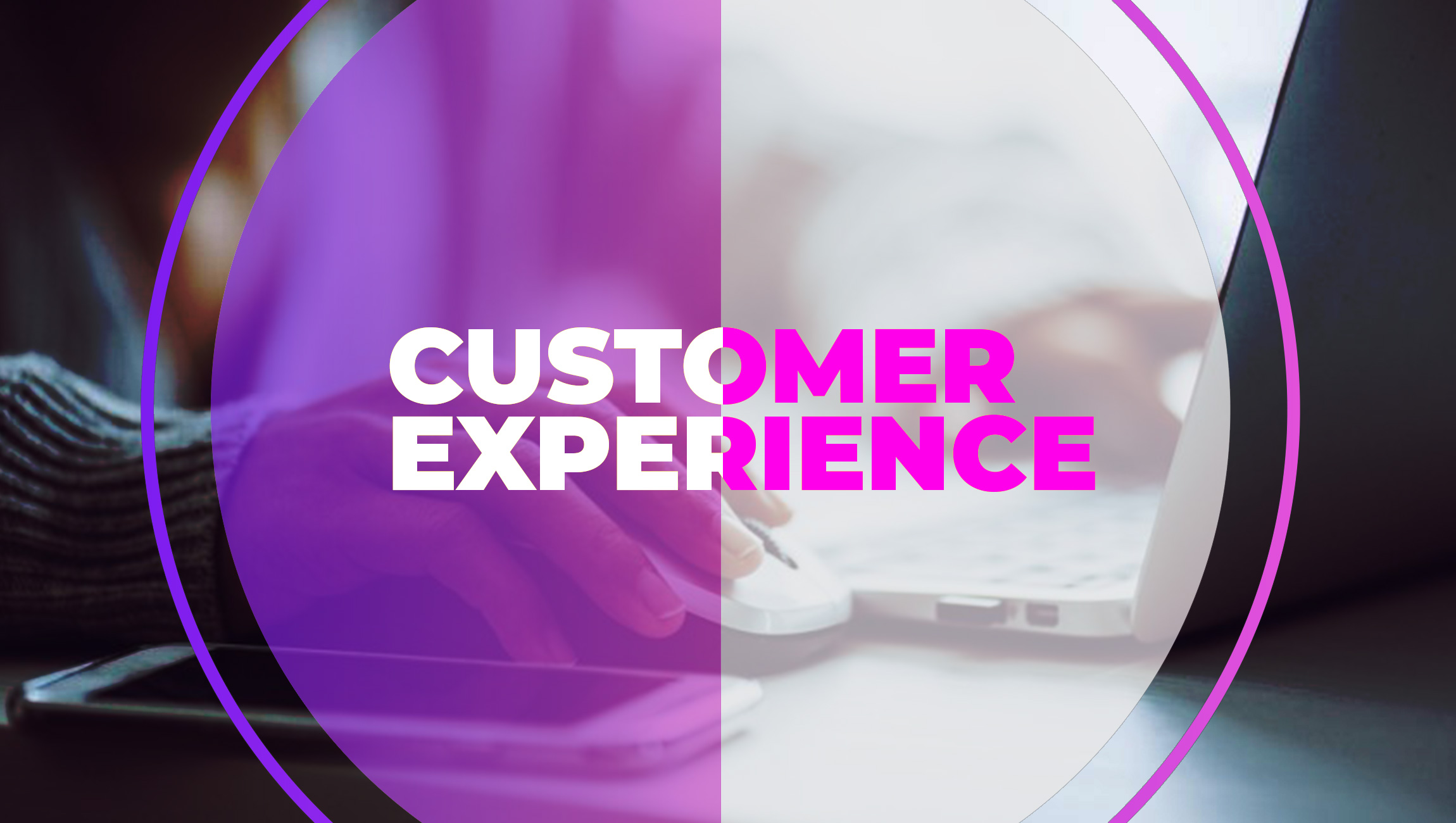Brandon Logsdon talks about how PDI is committed to community partnerships
How was this partnership established?
The National Association of Convenience Stores (NACS) is always looking for ways to proactively address the needs of the convenience and fuel retail and supplier industry. Training and nurturing the next generation of industry leaders and visionaries is part of that need. When the opportunity came up to partner with the Massachusetts Institute of Technology’s (MIT) Sloan School of Management, NACS turned to PDI, Shell and Gilbarco Vedeer-Root as endowment partners. The result is the NACS Innovation Leadership Program. It’s the first NACS program of its kind at MIT. It’s the intersection of Big Data, Innovation and Engineering, and PDI is at the heart of it. We’re very excited to be a part of this initiative and to help lead the market toward the next step of change and innovation.
Why MIT? Were there important factors in choosing this particular institution?
At PDI, we seek excellence and innovation in the industry, high integrity and high credibility with our customers. All of these values are aligned with what MIT represents. The entrepreneurial track record of MIT alumni speaks for itself. A 2015 study has determined that MIT graduates have collectively created 30,000 companies over the years with more than 4.6 million employees and nearly $2 trillion in annual revenues. Our leadership program is looking to build upon that foundation.
Why is this partnership unique within the industry?
The opportunity to focus on innovation and look to the future is unique. Another thing that has never been done before is the coming together of a world-renowned institution like MIT, NACS as the voice of the industry, and key industry players such as Shell and Gilbarco Veeder-Root. That gave our team at PDI a compelling reason to join the partnership. This leadership program is a great opportunity for us to further expand our presence in the market, help the community through education and demonstrating innovation and leadership within an industry that we hold near and dear.
How does PDI’s people-first approach fit within this program and why is PDI committed to community partnerships such as this?
At PDI, we have an illustration of a nucleus, which looks like a flywheel, to represent our solution strategy. At the center of the wheel is people. That refers to both our employees and customers and the relationships that we build and invest in. Through these relationships, we serve three markets, which are represented by another layer of the wheel — retail, wholesale and logistics. The next two layers represent the solutions and services we provide. The outermost and biggest layer represents the community and the ecosystem, which in the case of this partnership, refers to MIT, NACS, Shell and Gilbarco Veeder-Root. But it all starts with people because that’s the core of what we do. Through this partnership, we’re making a statement not only to our customers and our market but to our employees. We’re telling them how we’re going to continue to invest in people and to nurture innovation and the disciple behind innovation. We want to be on the front end by partnering with like-minded companies such as Shell and Gilbarco Veeder-Root and institutions such as MIT and NACS.

Can you explain how this program helps to educate the next generation of industry leaders about the value and importance of customer experience, engagement and demand?
Customer experience, people engagement, operating models and supply chain are important areas that will be covered by the curriculum. The training will combine research-based management frameworks with practical, hands-on experiences tailored for leaders at convenience retailers and suppliers. It’s designed in a way that those leaders will be able to apply what they learn directly to their companies, and hopefully, mentor other people in their organizations or at least share the lessons with their teams. Ultimately, we hope the program inspires attendees to pursue strategic innovation in their own companies, which can only be for the greater good of the entire industry.
In relation to customer experience, engagement and demand – tell us about Marketing Cloud Solutions and how it pertains to the convenience retail industry?
PDI Marketing Cloud Solution is a unified Marketing platform designed specifically for the convenience retail and petroleum wholesale industries. We help retailers engage more with consumers and use data to drive greater profitability on a customer-by-customer basis. We also help modernize the convenience retail industry. There’s a lot of innovation that goes into MCS, but it’s less apparent to the end consumer. A lot of suppliers see convenience retailers as the “last frontier” of loyalty marketing. There’s a huge, growing market in this industry, which is one of the last adopters of the customer loyalty construct. There’s a ton of opportunity and excitement about how loyalty can grow a retailer’s business.
Our 2019 C-Store Shopper Report shows that it’s not a matter of “if convenience stores have loyalty programs” but “when.” It’s clear there’s been a tipping point in customer loyalty. Over two-thirds of convenience retailers have loyalty programs now, which means we’re starting to move from adoption of a loyalty program to optimization. It’s one thing when you’re trying to convince a retailer to establish a program. It’s another thing to partner with them to grow their program. That’s a sea change in the last 24 months in convenience retail. It’s an exciting time for the industry. MCS goes beyond just helping retailers put together a loyalty program because we recognize that the true value of a loyalty program is about enhancing the customer experience — giving customers the rewards they want and engaging them where and when they want.
How does Marketing Cloud Solutions help convenience retail leaders?
We have extensive experience — over 20 years — building and operating loyalty programs. In fact, we own and operate one of the country’s largest loyalty programs, the Fuel Rewards program. It’s a cents-per-gallon savings program that has helped U.S. consumers save more than $1.7 billion on the cost of fuel to date. The program allows loyalty members to earn savings at a variety of issuing partners such as rideshares, travel, restaurants, and Shell, and redeem those discounts at participating Shell stations nationwide. Fuel Rewards membership has grown from 10 million members in 2017 to over 20 million members today.
Within that context, there are two ways we help retail leaders. First, we have the depth and breadth of insight around what works and doesn’t work in loyalty programs. If you’re a C-suite leader, MCS is like an insurance policy to make sure that your money works smartly for you because it can help short-circuit a lot of things in your loyalty program. Second, we have a significant amount of data and insight about what type of offers and what type of program strategies to deploy based on our extensive experience. And once the loyalty program is up and running, MCS provides the tools that allow the leadership to understand the value that the loyalty program is providing. That’s a critical component of any loyalty program because retail leaders want to know that their investment in the program is worth continuing.
How is the digital ecosystem changing for convenience retailers?
Convenience retail is not dissimilar from other retail sectors. Contextual relevance is always the name of the game in loyalty programs. If you’re a retailer, you must have the data to understand who your customers are and what they’re buying and be able to use that data to make informed decisions about how and when you’re going to target them and what you target them with. That’s Loyalty 101. Email campaigns remain popular, but there’s a big shift to in-app messaging, geotargeting services, push notification through the phone, and serve and offer based on past purchases. The key change is that we’re moving from a loyalty model that was predictive and campaign-driven to a model that’s very much event-triggered. An individual segment can be targeted and re-segmented and retargeted on a daily basis based on prior events and customer behaviors, or the current day’s events and behaviors, or by entering geotargeted criteria. The digital ecosystem for convenience retailers is literally changing on a daily basis.
Thank You, Brandon, for answering all our questions. We hope to see you again soon.












